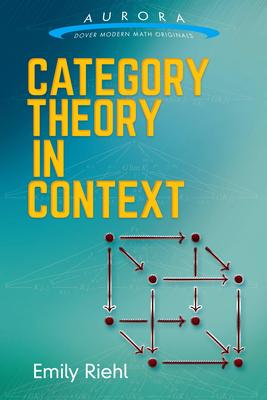
Category theory has provided the foundations for many of the twentieth century's greatest advances in pure mathematics. This concise, original text for a one-semester course on the subject is derived from courses that author Emily Riehl taught at Harvard and Johns Hopkins Universities. The treatment introduces the essential concepts of category theory: categories, functors, natural transformations, the Yoneda lemma, limits and colimits, adjunctions, monads, and other topics.
Suitable for advanced undergraduates and graduate students in mathematics, the text provides tools for understanding and attacking difficult problems in algebra, number theory, algebraic geometry, and algebraic topology. Drawing upon a broad range of mathematical examples from the categorical perspective, the author illustrates how the concepts and constructions of category theory arise from and illuminate more basic mathematical ideas. Prerequisites are limited to familiarity with some basic set theory and logic.
Category theory has provided the foundations for many of the twentieth century's greatest advances in pure mathematics. This concise, original text for a one-semester course on the subject is derived from courses that author Emily Riehl taught at Harvard and Johns Hopkins Universities. The treatment introduces the essential concepts of category theory: categories, functors, natural transformations, the Yoneda lemma, limits and colimits, adjunctions, monads, and other topics.
Suitable for advanced undergraduates and graduate students in mathematics, the text provides tools for understanding and attacking difficult problems in algebra, number theory, algebraic geometry, and algebraic topology. Drawing upon a broad range of mathematical examples from the categorical perspective, the author illustrates how the concepts and constructions of category theory arise from and illuminate more basic mathematical ideas. Prerequisites are limited to familiarity with some basic set theory and logic.
Paperback
$35.00